At first light on February 19, a boat carrying 37 people, amongst them 13 small children, ended up in distress deep inside Greek waters, south east of Plomari, Lesvos south.
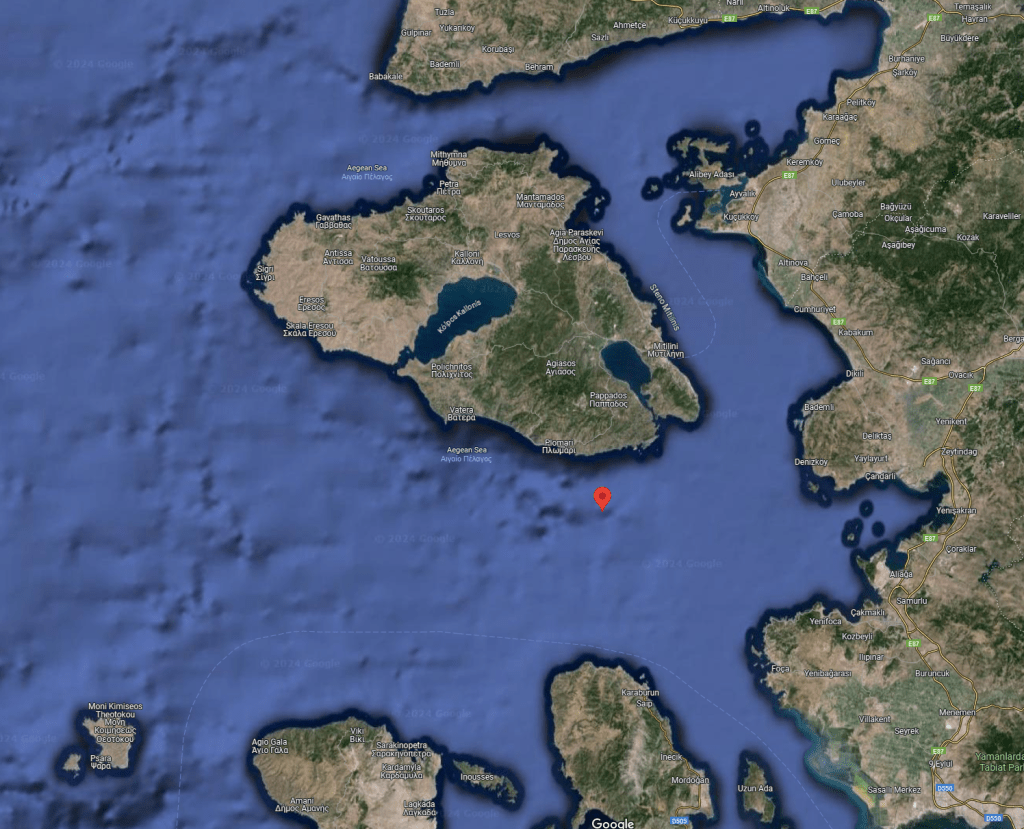
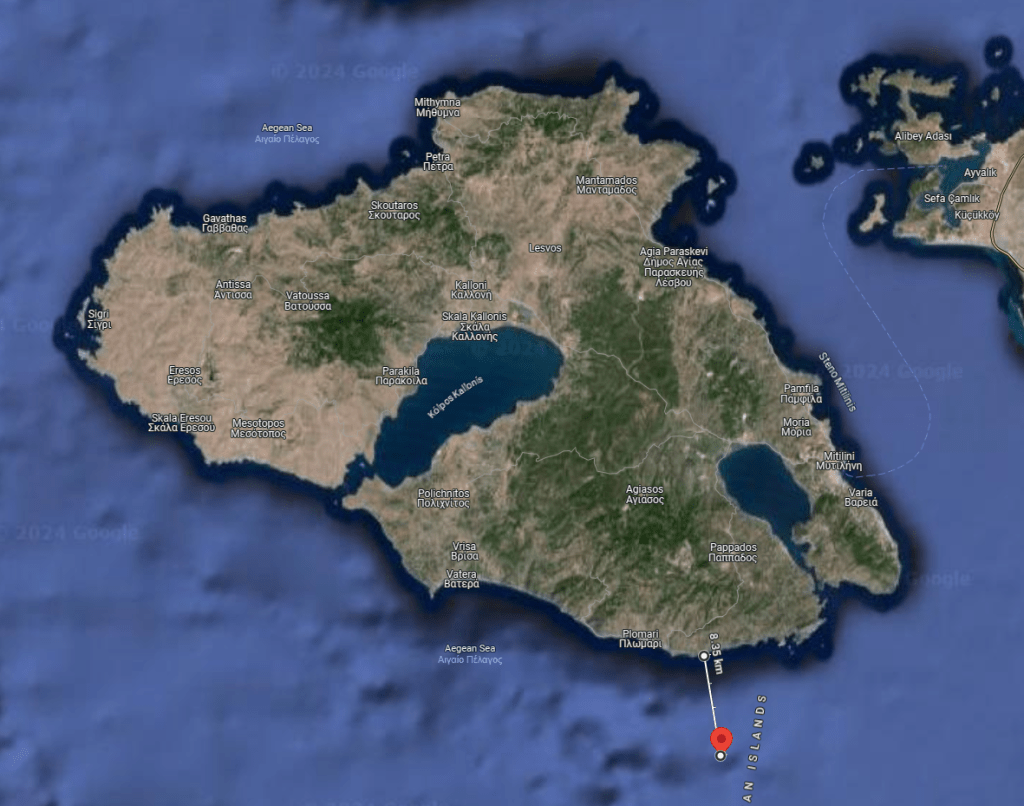
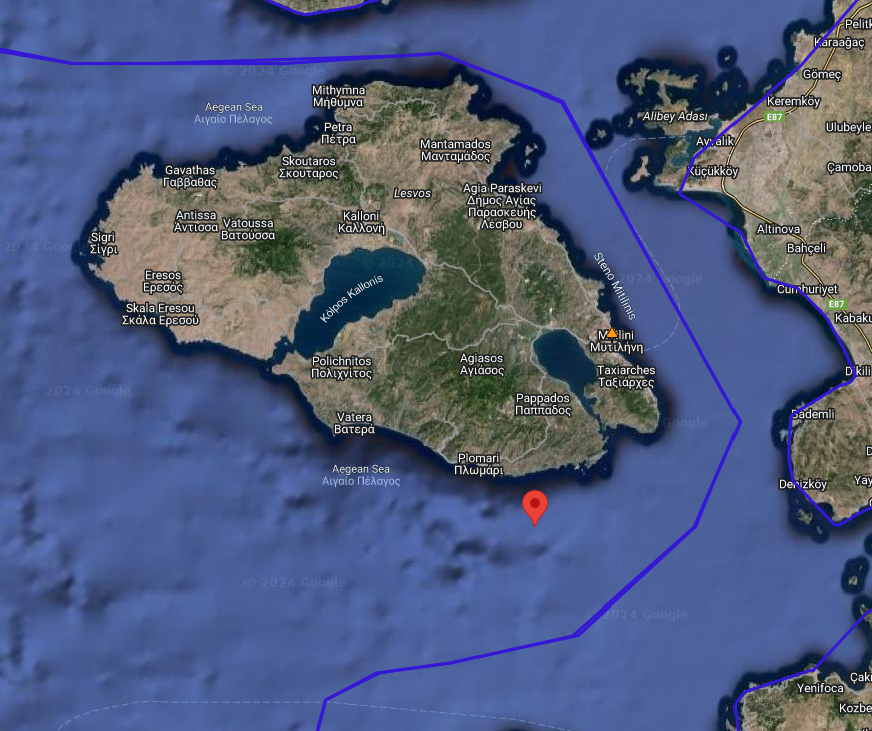
First on scene was the Bulgarian coast guard vessel “Balchik”, which is stationed on Lesvos as part of the European Border and Coast Guard Agency Frontex operation, Poseidon.



Under normal circumstances, any coast guard vessel would immediately initiate rescue if they came across a boat in distress. Unfortunately for these 37 people, there is nothing “normal” about the situation in the Aegean Sea, where for some reason international law and fundamental rights don’t seem to apply.
The group was relieved that the boat coming to their rescue was a Frontex vessel, and not the Greek Coast Guard. They knew that the Greek coast guard would immediately push them back to Turkey, but surely this vessel wouldn’t, or so they believed.
The Bulgarian Frontex vessel “Balchik” stopped at a safe distance, put a rescue RIB in the water, and approached the drifting overloaded rubber boat. The people onboard waved and shouted towards them, begging to be rescued, tried to explain that there was water coming into the boat, and they had many children onboard.
Again, under normal circumstances, the crew on the rescue RIB would first assess the situation, then start a rescue operation to transport people from the unseaworthy, fragile rubber boat, to the larger coast guard vessel.
For some reason, this didn’t happen.
The Bulgarian Frontex vessel and their rescue RIB, didn’t attempt to start any rescue operation, they only observed, while people in the rubber boat were begging them to help them. From video we have received, we can clearly see that none of the passengers in the rubber boat had life jackets. While observing from a distance, the crew of the Bulgarian Frontex vessel must also have seen the total lack of any rescue equipment onboard.
If something had suddenly happened to the rubber boat, that led to people ending up in the sea, the two officers in the rescue RIB wouldn’t have had any possibility of rescuing them all.
The RIB from the Bulgarian Frontex vessel didn’t even have life jackets with them to hand out to the people in distress, a clear indication that they had no intention whatsoever to rescue them.
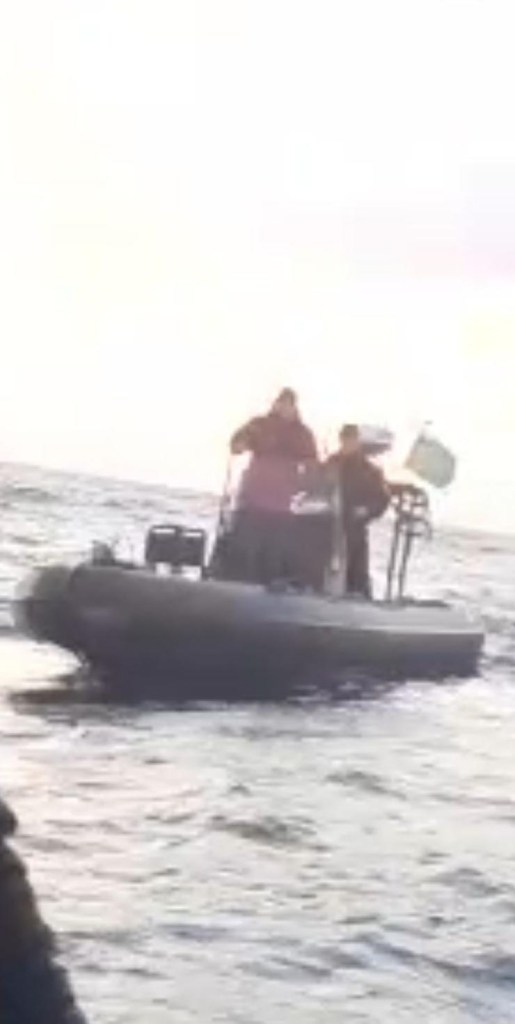
After approximately 45 minutes, a Greek coast guard vessel arrived on location, and the Bulgarian Frontex vessel was ordered to leave the area. Why the Greek coast guard ordered Frontex to leave is quite obvious to the rest of us, but for the captain of the Bulgarian Frontex vessels, it didn’t seem to raise any concerns at all.
According to operational procedures, Greek authorities must, when ordering a Frontex asset to leave an incident, give a reason for this order, this reason should then be referenced in the report by the Frontex asset. Also, the Bulgarian Frontex vessel should have filed a report after the incident, as the agency’s rules state its operatives must report any incident in which there are suspicions or indications that violations of international laws or human rights have been committed.
Remember that they are not told to report when they are certain of such a violation, but when there is any possibility one has been or will be committed. We must assume that Frontex assets in the Aegean Sea under Operation Poseidon, are fully aware of the widespread and systematic pushback tactics by Greek authorities. For this reason, whenever a Frontex vessel is ordered to leave an incident involving refugees, it should be apparent to Frontex that there is a high probability that human rights violations will take place.









This should of course be reflected in the reports by Frontex, if such reports are written at all.
The procedures are crystal clear, any suspicion of human rights violations must at all times be reported, so why is this consistently “forgotten” by all Frontex assets in Greece under operation Poseidon?
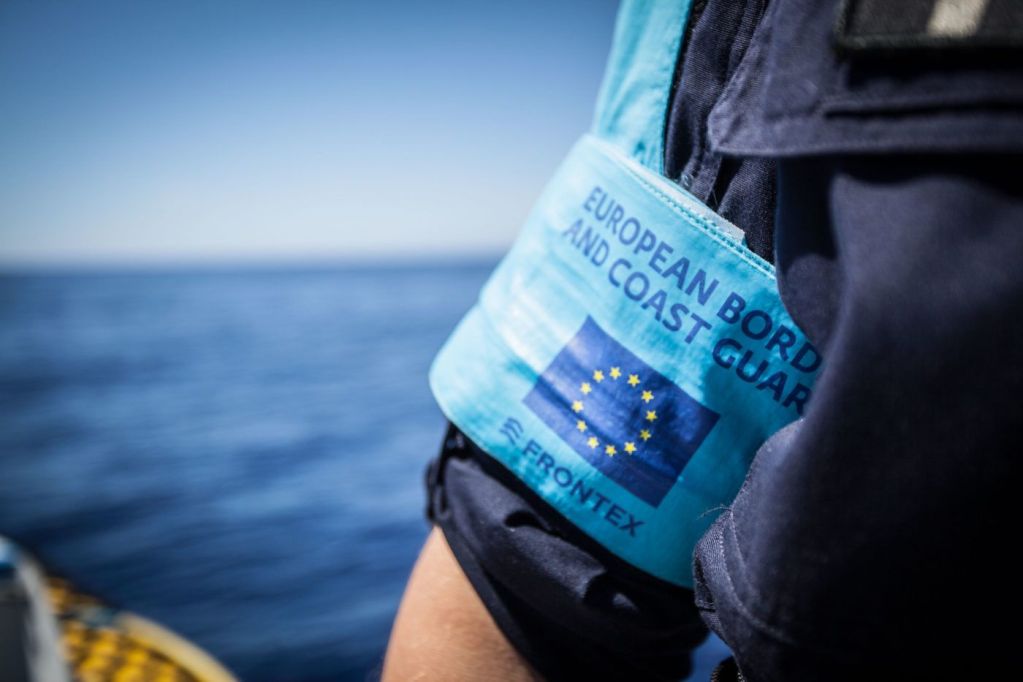

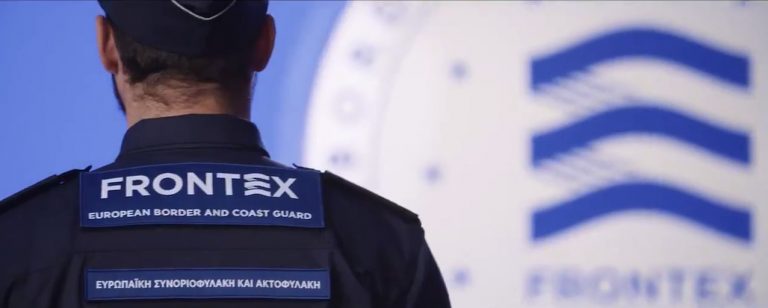
Why are no such reports being filed by Frontex personnel in Greece? Over the last four years 3.000 pushback cases have been documented in the Aegean Sea, involving 82.000 people. These has been carried out by Greek authorities, heavily supported by Frontex and the EU Commission.
Perhaps this is why Frontex systematically ignores their duty to report on human rights violations in the Aegean Sea, covering up for Greek atrocities while protecting their own oppression?
In this incident, 37 people, 13 small children, were handed over to the Greek coast guard, who towed the fragile overloaded rubber boat back to Turkish waters, and set them adrift. They were left helplessly drifting in the middle of the sea. The Greek authorities didn’t even bother to provide them with life jackets or any other form of rescue equipment, they just left them.
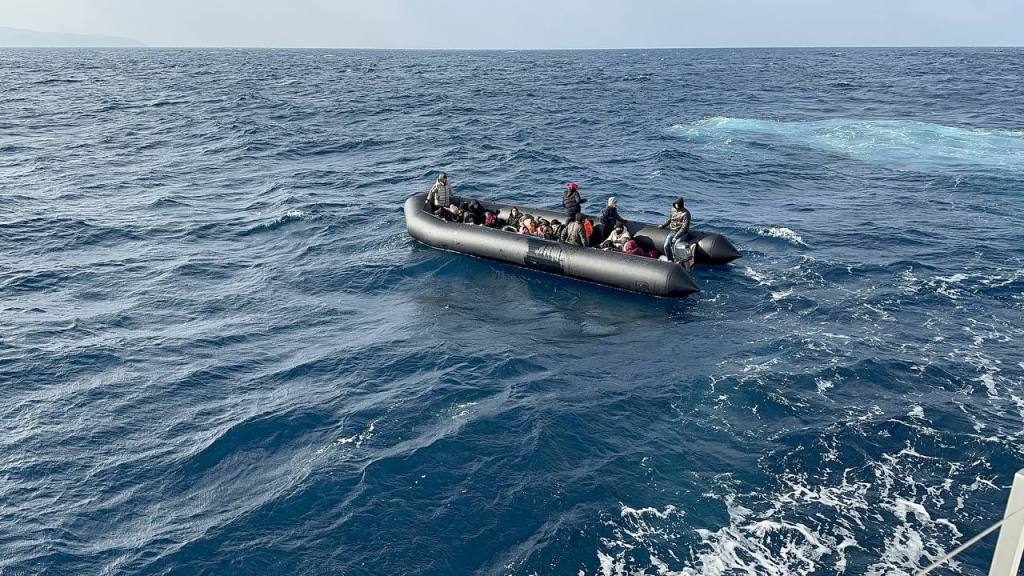
Before leaving these vulnerable people adrift, they made sure to destroy the boat’s engine, removed the petrol, and took away all phones onboard, so that the people couldn’t document the crimes committed by Greek authorities, nor could they call for help if something went wrong.
At 11am, the Turkish coast guard found and rescued a group of 37 people, amongst them 13 small children, drifting in a fragile overloaded rubber boat off the coast of Karaburun, Turkey.
There isn’t much doubt on what happened here, nor who was responsible. Nevertheless, the Greek coast guard consequently denies pushing back boats, claiming that they turne around and head back towards Turkey by their own means.
The boat carrying 37 people had turned around and headed back to Turkey, travelled 20km with a destroyed engine without petrol, and while traveling back, they had thrown all their phones in the sea. This is the explanation Greek authorities want you to belive.
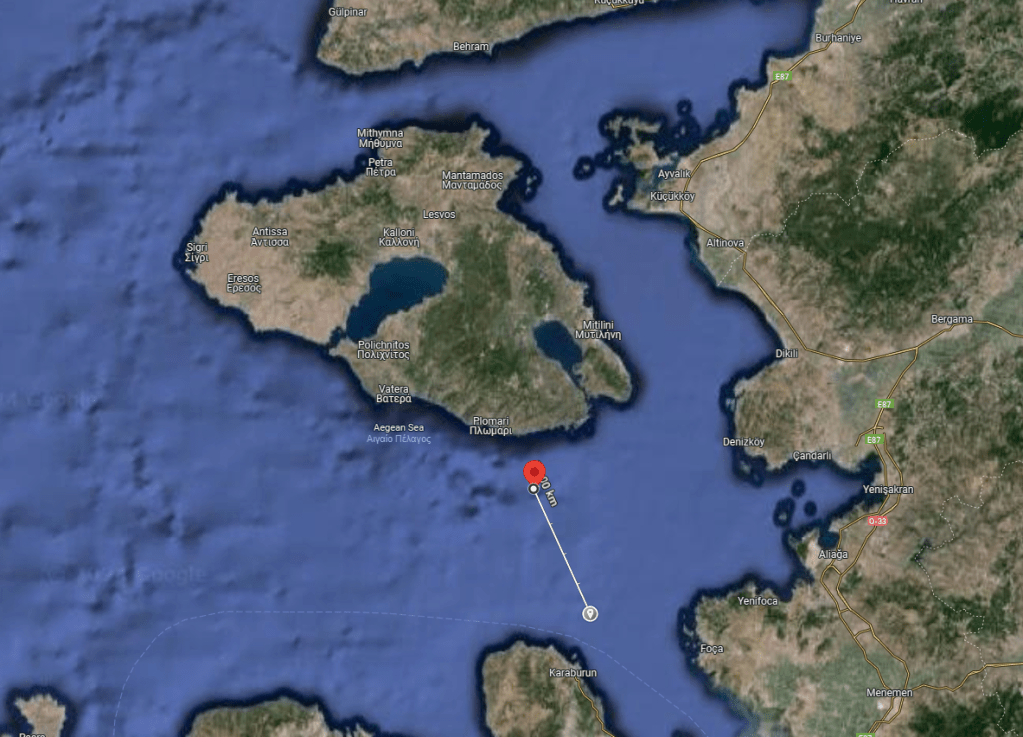
This case should have been immediately reported by the captain of the Bulgarian Frontex vessel “Balchik”. A Serious Incident Report (SIR) should have been filed based on the imminent danger of this group being pushed back to Turkey by Greek authorities.
No such report was filed, and the Bulgarian Frontex vessel deliberately covered up yet another illegal pushback in the Aegean Sea by Greek authorities. The cases we report on are only the tip of the iceberg. A very small percentage of these cases are ever documented to such an extent that it is possible to investigate.
In most cases there is no footage available. The criminals are getting away with the crimes, because Frontex are helping Greek authorities to cover up their crimes. Normal procedure in the Aegean Sea is that Frontex is assisting Greek authorities in stopping boats deep inside Greek territory waters, and is then ordered away, so that they won’t be a direct witness to the crimes and fundamental rights violations performed by Greek authorities.
They are basically told to look away, and are most happy and eager to comply, no questions asked, all in the name of EU border policy.
This particular case, and many similar cases, have been reported to the Fundamental Rights Officer of Frontex, not by Frontex assets involved as they definitely should, but by Aegean Boat Report.
This so that these cases can be investigated properly to see if Frontex is following its fundamental rights obligations in accordance with EU and international law.
In this case, as in many other similar cases, the conclusion is clear.
Frontex is not following its fundamental rights obligations in accordance with EU and international law, and Greek authorities are responsible for systematic illegal deportation of people from their territory.

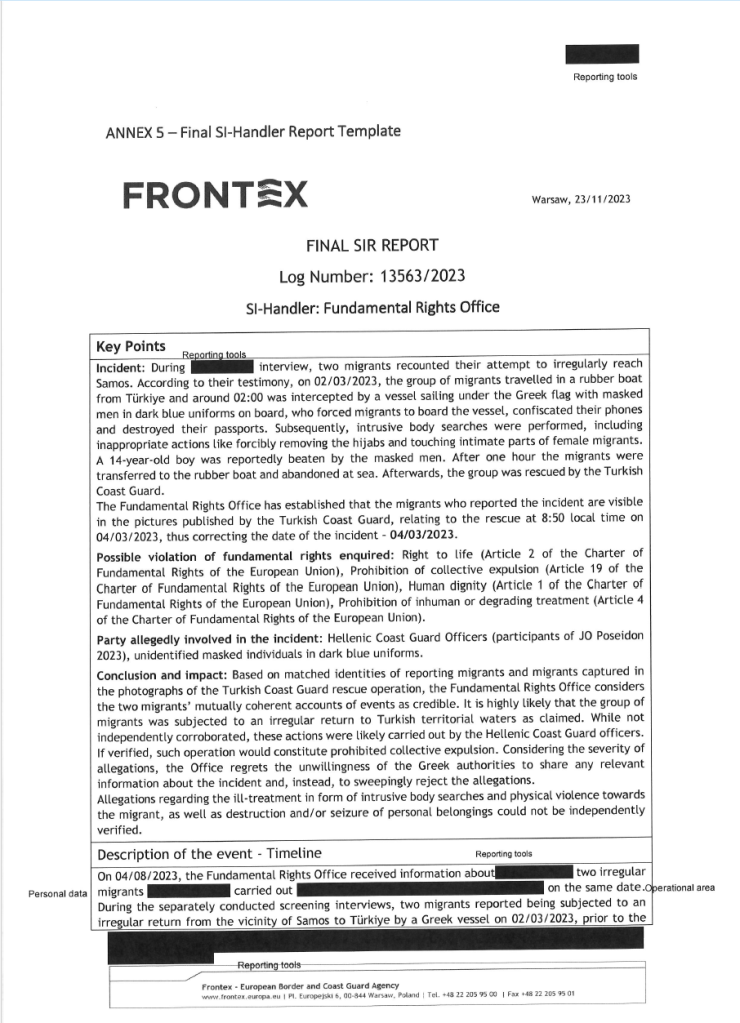
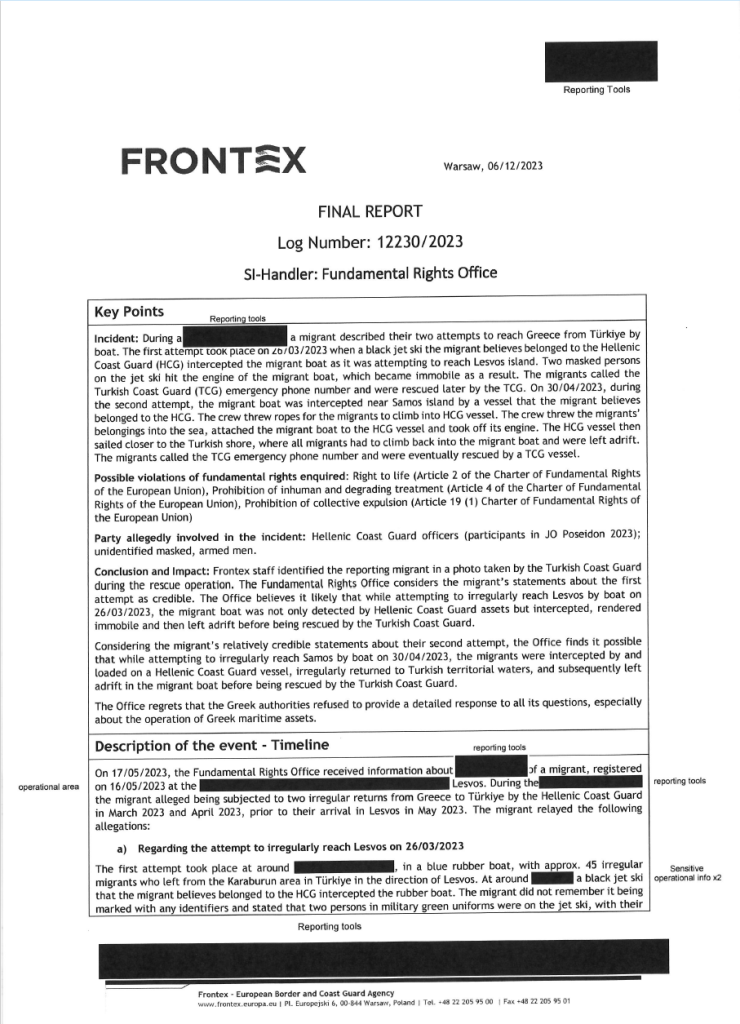
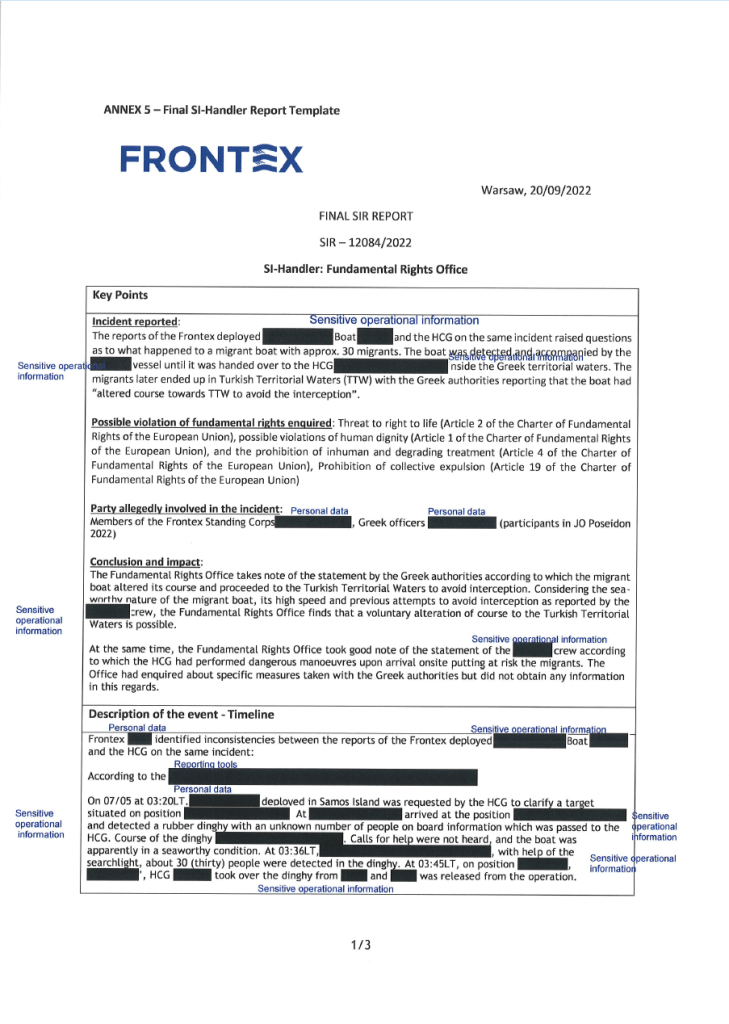

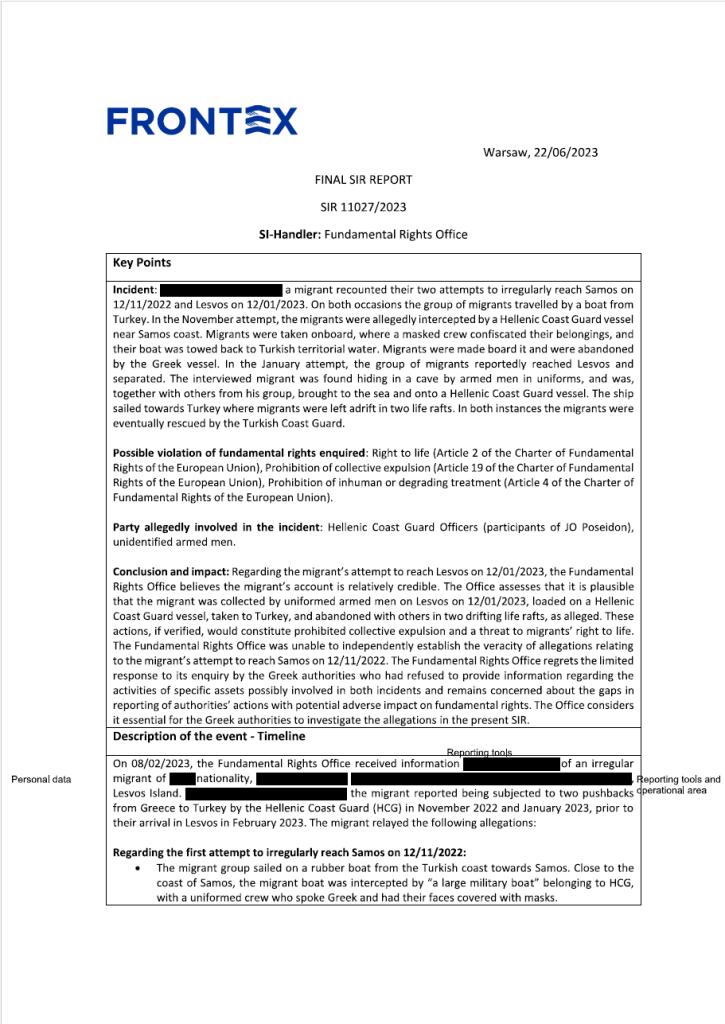
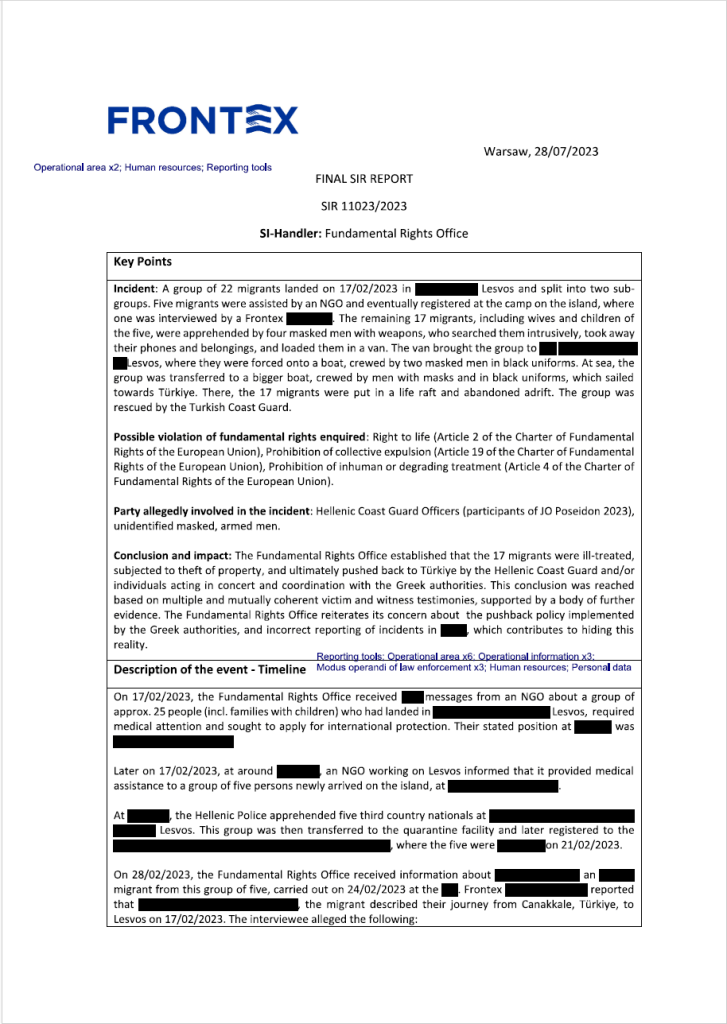
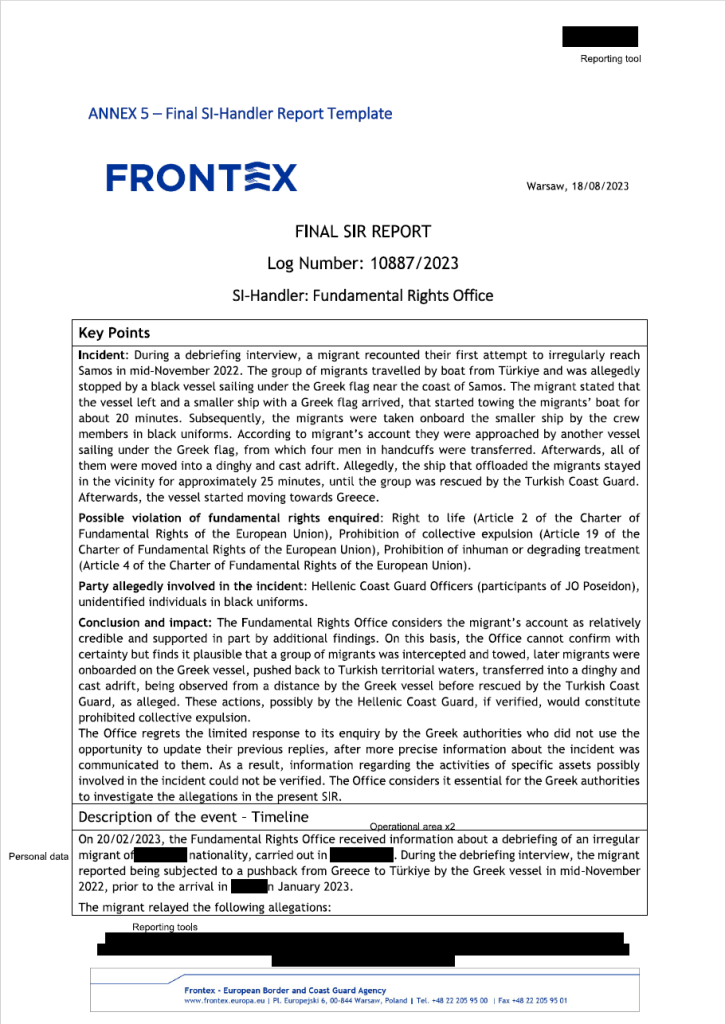
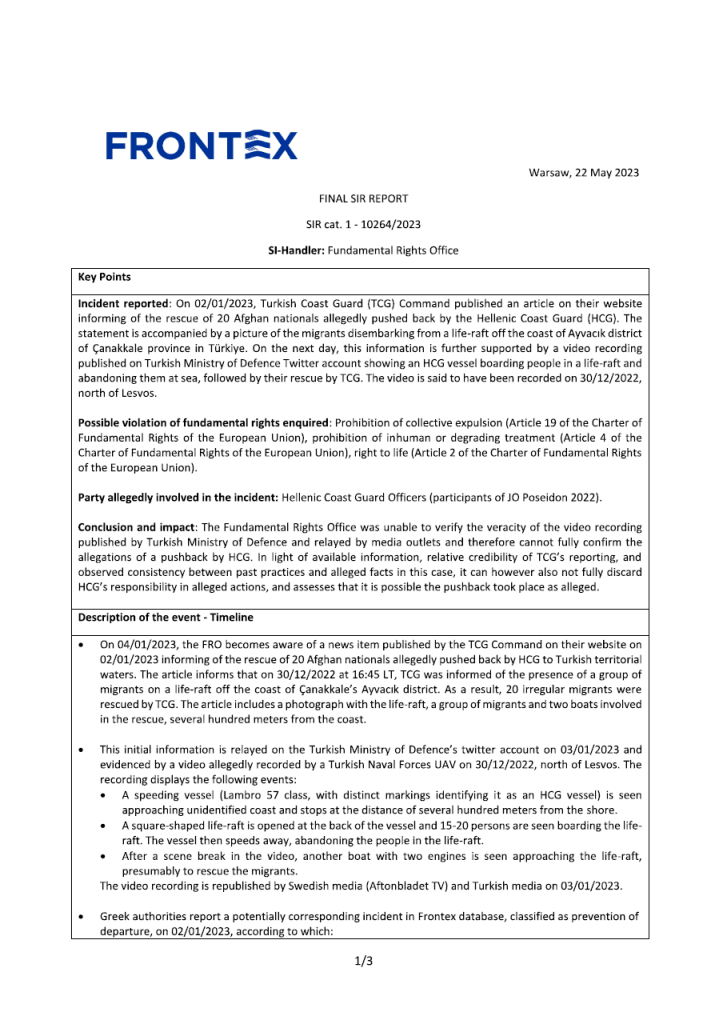
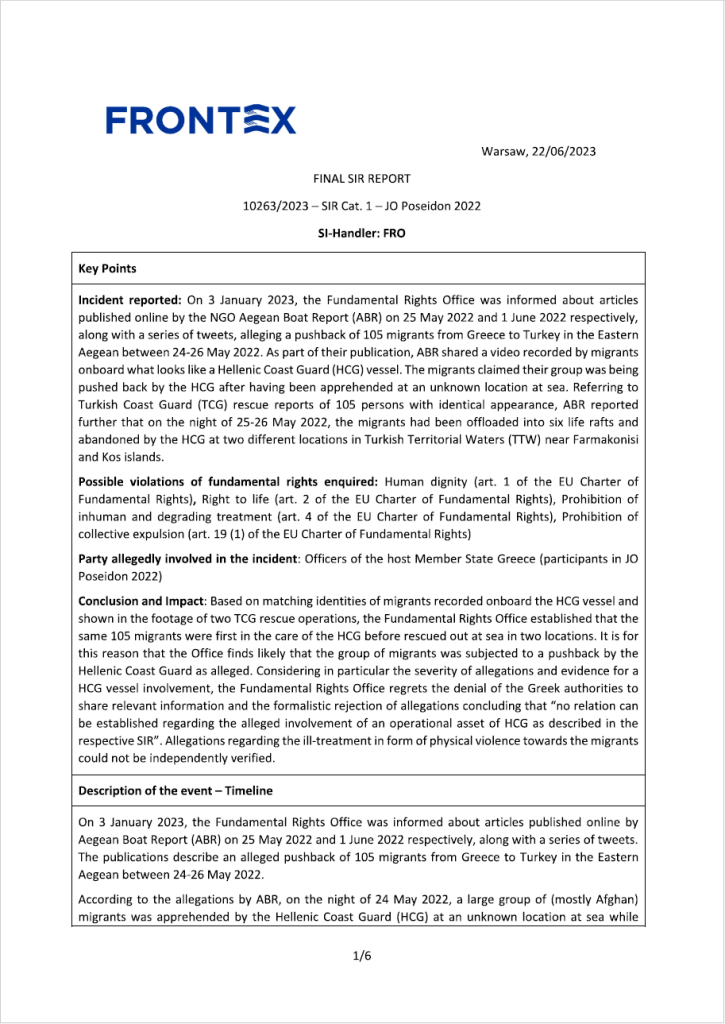
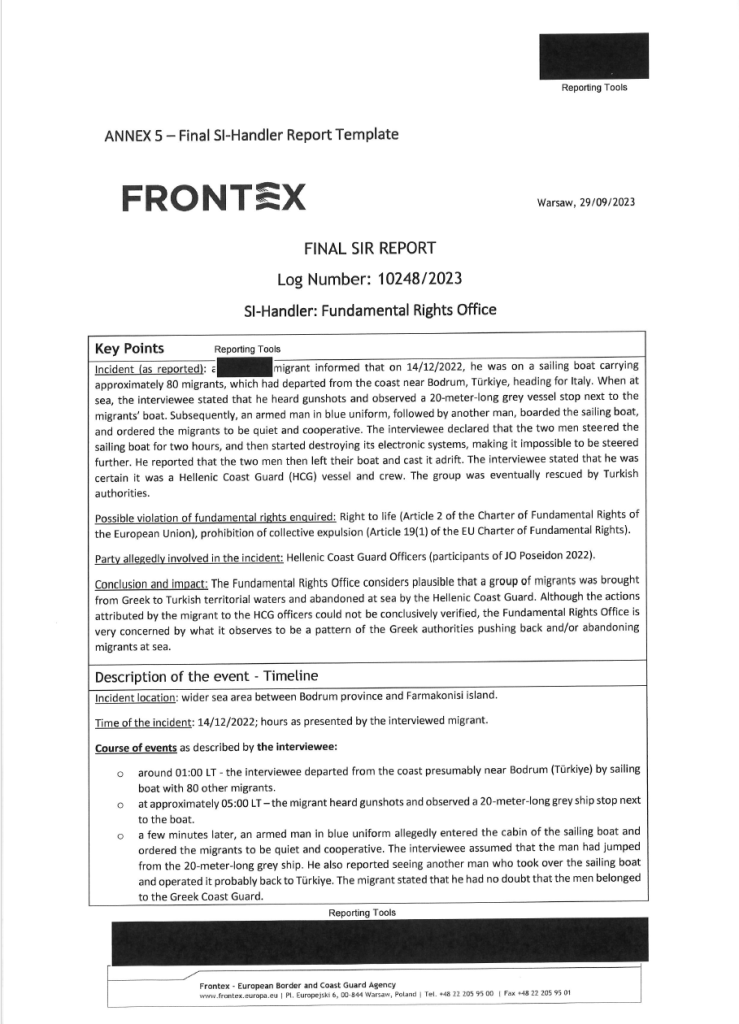
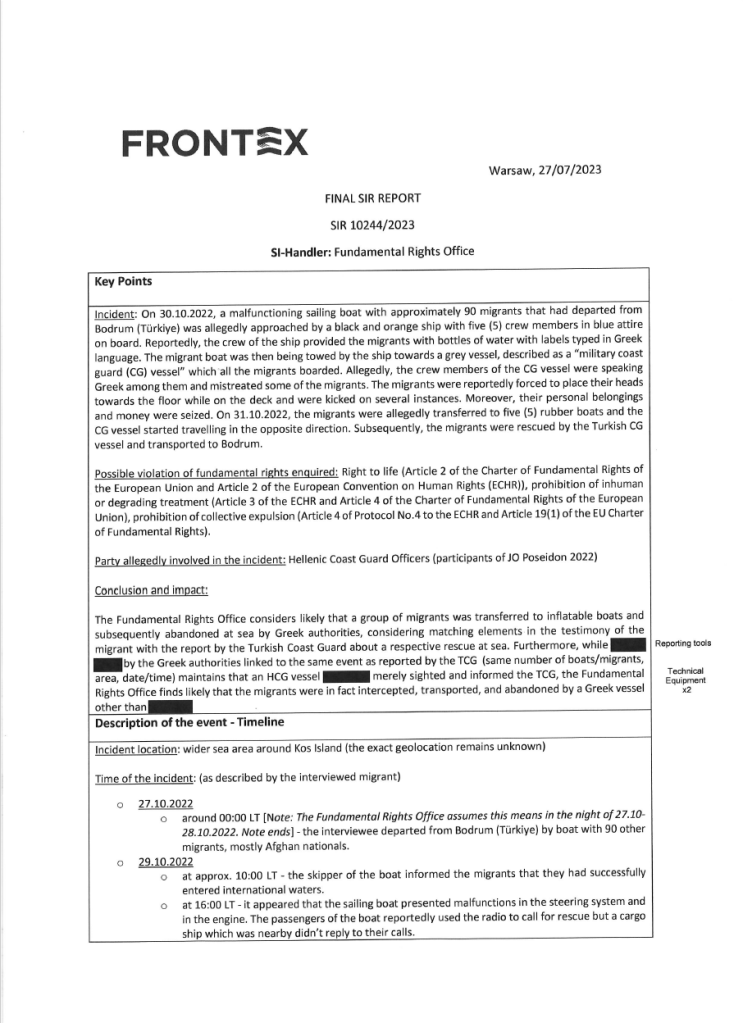
Frontex fundamental rights officer, Jonas Grimheden, has repeatedly recommended Frontex suspends operations in Greece, based on years of systematic fundamental rights violations by Greek authorities.

So far, Frontex’s Executive Director, Hans Leijtens, Frontex management board, nor the EU Commission, has taken any notice of his recommendations.
Instead of suspending operations, they have significantly increased support and funding to Greek authorities, sending a strange message regarding the rule of law in Europe.
Last year many investigations were undertaken by the Fundamental Rights Office in Frontex. The two highest-profile cases were the Pylos shipwreck, where over 650 people were killed by Greek authorities in a fatal pushback attempt June 14 last year, and the Lesvos pushback on April 11, filmed by Fayad Mulla, and brought to light by the New York Times.

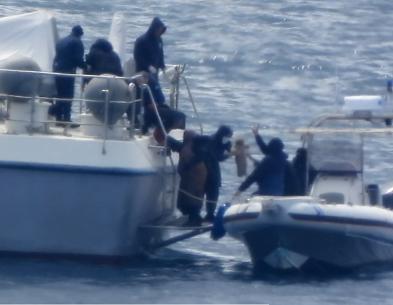
These two Serious Incident Reports had high public interest. The question is, did they actually have any impact, lead to any significant changes, or have any consequences for the Greek authorities?


The answer is unfortunately no, in both cases. None of these reports had any impact as far as we can see, no changes to the better have been made, and there are no consequences for the Greek authorities, nobody has been held accountable, and most likely nobody will.
This is not an acceptable situation. Whatever the reasons people have for wishing to escape their homelands, nobody deserves to be stripped of their possessions and set adrift to risk their lives at sea, and there is no excuse for anyone – let alone the world’s wealthiest political bloc and its members states – to do so.
EU taxpayer’s money is being spent on this outrageous crime, even as the EU itself demands to be regarded and respected as a promoter and protector of international law and fundamental human rights.
At what point do we the people of the EU and elsewhere demand that the EU lives up to its self-declared standards, and that Frontex stops aiding and abetting crimes in European waters?
Even if we cannot expect the current Greek government to behave like anything other than a vicious criminal cabal, such an expectation should be the least we can demand of the European Union and its agencies.

